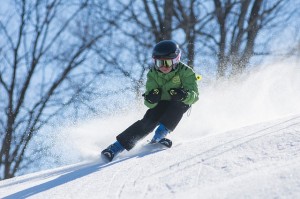WINTER WEATHER EYECARE
 If you live in the Northeast, then you are well aware that this year is off to a blistering start. Erie has been buried in blizzard conditions with multiple feet of snow. Pittsburgh is shivering in the deep freeze. With December having temperatures near zero and wind chills below zero, many people find it a struggle to get bundled up to fight the cold.
If you live in the Northeast, then you are well aware that this year is off to a blistering start. Erie has been buried in blizzard conditions with multiple feet of snow. Pittsburgh is shivering in the deep freeze. With December having temperatures near zero and wind chills below zero, many people find it a struggle to get bundled up to fight the cold.
For those who enjoy the outdoor sports associated with colder weather such as snow skiing, boarding, sled riding, riding snow mobiles or even ice fishing, it is important to have the right clothes to keep you warm and comfy as you brave the freezing temperatures.
Did you know that your eyes can get sunburned in the winter? Snow and ice reflect up to 80% of the sun’s ultraviolet (UV) rays. When you are out on the slopes, or sliding down the big hill in your yard, UV rays are hitting you from every angle.
UV exposure can cause a painful condition called photokeratitis, or “snow blindness.” While you can get snow blindness any time of the year it is most common in the winter due the amount of UV rays that are reflected off of the snow and ice.
Protecting your eyes during the winter months can also help to prevent:
- Wrinkles around the eyes
- Age-related macular degeneration
- Cataracts
Exposure to extreme cold can also affect your eyes. Some of the symptoms of extreme cold exposure often include eye pain and blurred vision. The cornea, or the front of your eye, can freeze if temperatures are cold enough and your eyes are not protected.
So the question is, “Do you have the right eye protection to get through the winter?” Eye protection can range from sunglasses that have UV protection to protective goggles that not only protect your eyes from the UV rays but also can help to block out wind and cold.
Which type of eyewear is right for you? To answer that question, first you need to look at what type of outdoor activities are you planning on doing. If you are involved in an active sport such as snow skiing, snow tubing, or sled riding, goggles will help to protect from the sun, cold and even from debris getting into your eye. If you are out shoveling the driveway or grabbing the snow shoes to go for a walk through the woods, sunglasses may be your best bet.
In any case it is important to make sure that your eye protection has UV protection. Having the right gear this winter can help to keep you and your kids outside, playing in the snow and enjoying everything winter has to offer.
About the author: John D. Bissell, owner of Bissell Eye Care and Tri-State Low Vision Services, offers comprehensive eye examinations for the entire family, ocular disease detection and treatment, eye glasses, sun glasses, active wear, contact lenses, and low vision examinations for those with significant vision loss. He has undergone specialized training for treatment of low vision by the International Academy of Low Vision Specialists utilizing customized telescopic eyeglasses, prisms and telescopic implants for patients who qualify. The practice accepts most types of vision and health insurance plans.
